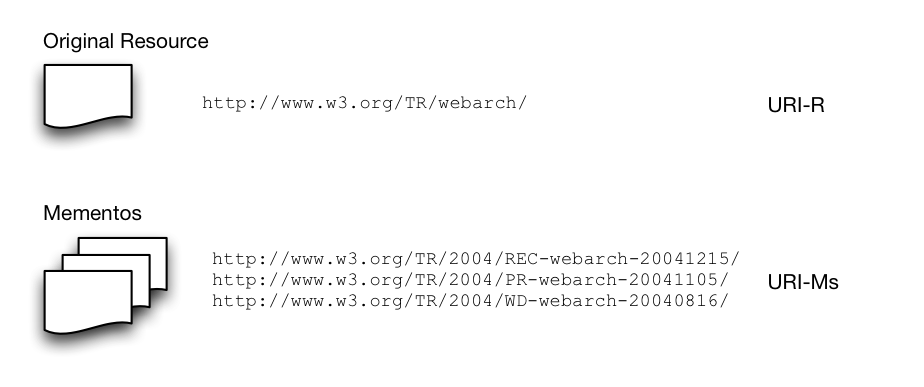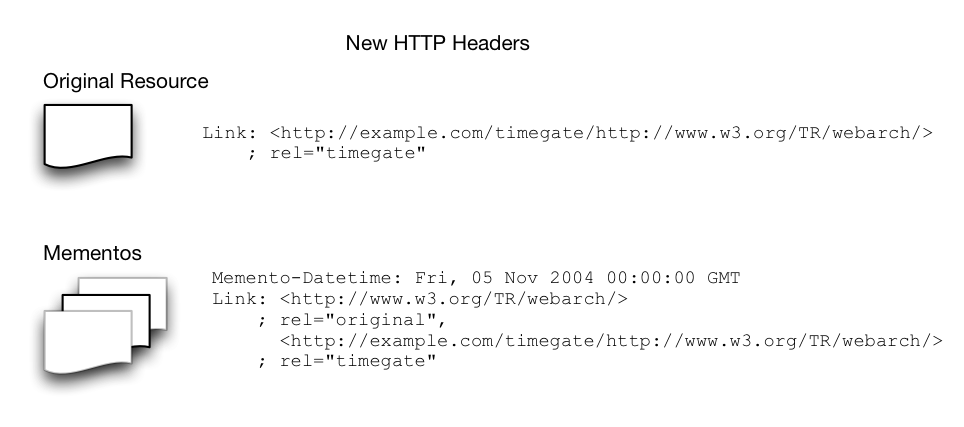-
Notifications
You must be signed in to change notification settings - Fork 15
HTTP Response Headers
The Memento framework requires specific HTTP headers in order to work properly. They must be added to the server's response headers for any Original Resources or Mementos request.
Intuitively, a user needs to be able to know which server to contact to do the time negotiation. Hence a link to the TimeGate is needed from both the Original Resource and the Mementos. Additionally, a Memento is defined by an Original Resource it is the snapshot of, and the date time at which it was created. Thus, it carries a link to its Original Resource and a datetime information.
Let's take the following example: Suppose a server is handling requests for the following URIs.

Each time a server responds to requests for any of these URIs, standards HTTP headers are returned. With Memento, the following headers are added:
- For the Original Resource, add a "Link" header that points at its TimeGate
- For each Memento, add a "Link" header that points at the TimeGate
- For each Memento, add a "Link" header that points to the Original Resource
- For each Memento, add a Memento-Datetime header that conveys the snapshot datetime
Using the previous example, and supposing a TimeGate server is running at http://example.com/timegate/, Memento HTTP response headers for the Original Resource and one Memento look as follows.

- The
Memento-Datetime:header is a Memento-specific header which value is the rfc1123-date of the Memento.- It must be included in any response to a Memento request.
- It cannot be in an Original Resource response.
- The
Link:header is a standard header to which new values are added.- A link to the TimeGate with relation
rel="timegate"must be included in all Memento and Original Resource responses. - A link to the Original Resource with relation
rel="original"must be included in all Memento responses. - Link with relation
rel="original"cannot be in an Original Resource response.
- A link to the TimeGate with relation